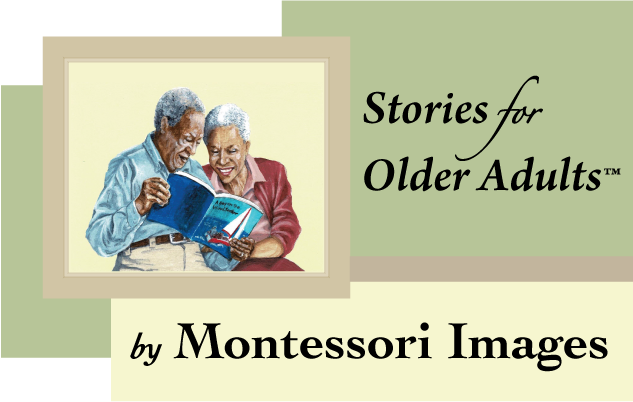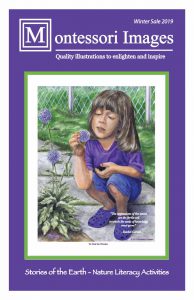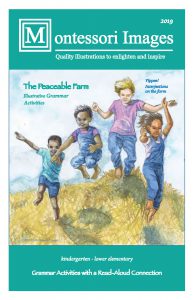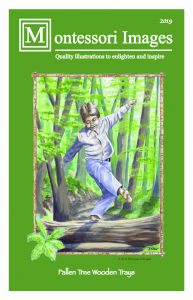Reading aloud is a preserved ability in dementia and many individuals, even those in the later stage of the disease, enjoy reading to others.
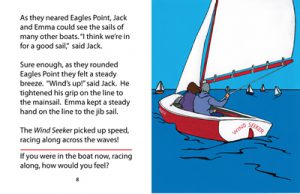
A Meaningful Read-Aloud Experience for Older Adults with Dementia
Stories for Older Adults
These short, illustrated stories feature large-print text and full-page, high-contrast color illustrations to accommodate the reading needs of people living with dementia and other cognitive impairment. A large-print question is presented at the end of each page of text to encourage conversation and interaction.
Soft cover, durable #80 paper
Dimensions: 8.5 x 11; 12 pages of text (verso); 12 pages of illustration (recto)
Story Extensions are companion activities to our Stories for Older Adults. These three-part card sets are designed to highlight a different visual perspective on the story, adding new points of interest to engage the reader and extend the conversation.
Three-part card extensions can also be used independently as part of a reading therapy “toolkit” for memory care communities.
Stories for Older Adults are written in collaboration with Jennifer Brush, M.A., CCC/SLP, an award winning Dementia Educator, author and consultant. Passionate about enriching the lives of people with dementia, Jennifer is on a mission to put the focus of care on the person’s preferences, interests and abilities. She serves on the Association Montessori International Advisory Board for Montessori for Aging and Dementia and is presently the only person in the U.S. teaching this international program. Learn more about her revolutionary work at www.brushdevelopment.com.
Suggested Uses
- Small group read alouds
A person with dementia can read the story to a small group of peers and present the question at the end of each page for group discussion. - One-on-one reading & conversation
A family member or care partner can read the story aloud to a person with dementia and use the questions to reminisce or inspire discussion. - Intergenerational reading
The stories follow an intergenerational theme to interest both older adults and children. A person with dementia can read to a child or with a child and experience the positive effects of interaction with children. - Independent reading
A person with dementia can read the story alone, either silently or aloud. Most enjoy reading aloud.
